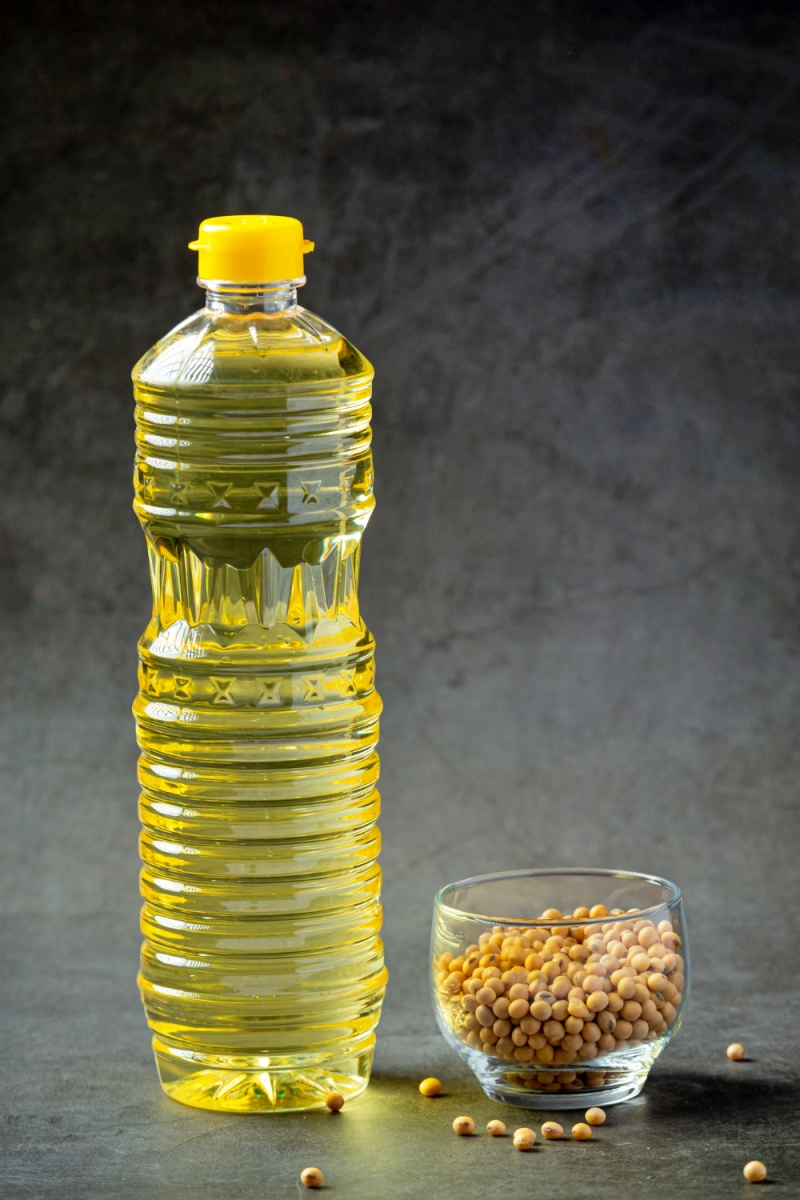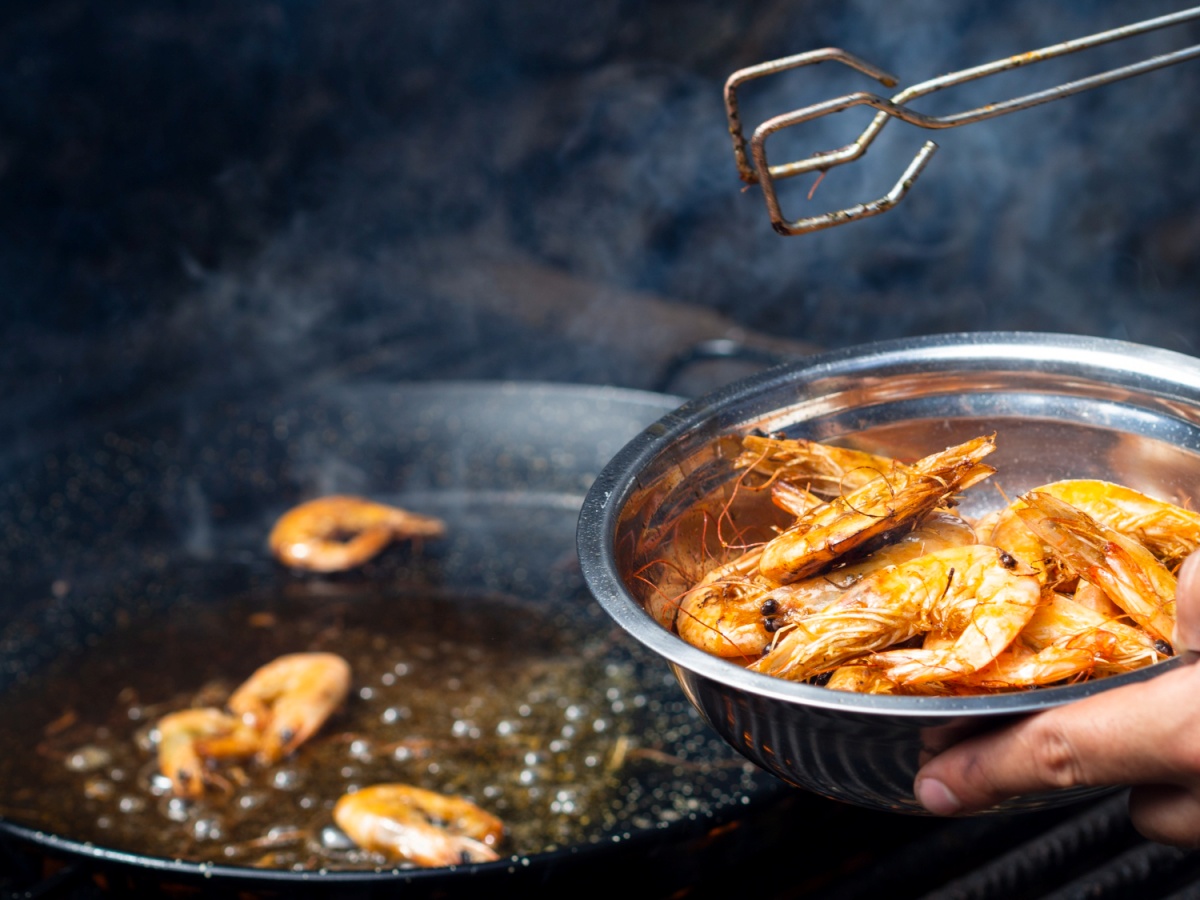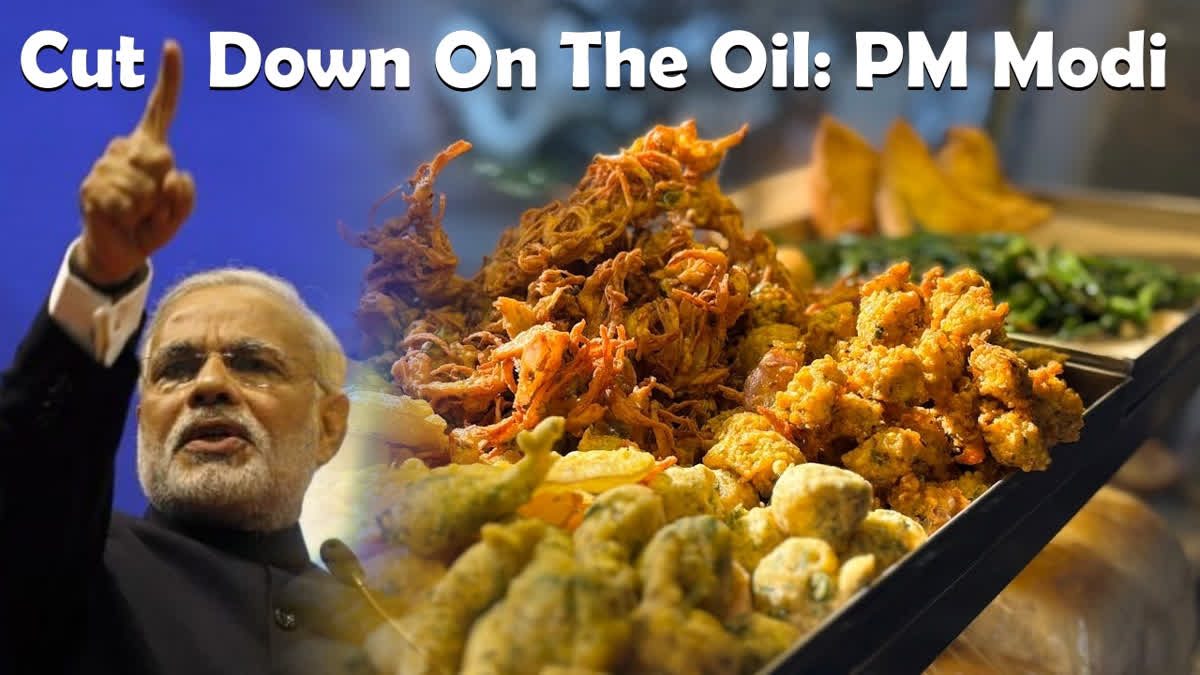Prime Minister Narendra Modi’s latest health initiative is turning up the heat, not only on obesity but on one of its biggest culprits: excessive edible oil consumption. On Monday, he nominated 10 prominent figures, from Jammu and Kashmir Chief Minister Omar Abdullah to business tycoon Anand Mahindra, in the fight against obesity by spreading awareness about reducing oil usage in food. The call to action comes at a time when India is grappling with a silent health crisis: the pervasive and dangerous role of edible oils in everyday cooking.
The Problem With Edible Oils In Indian Food
Walk into any Indian kitchen, and you’ll find oil sizzling away in a kadai, turning everything from samosas to parathas into crispy, golden delights. But hidden beneath the rich flavours is a dietary dependency that’s fueling chronic diseases at an alarming rate.
Says Dr. Chetan Kalal, Consultant Hepatologist and Transplant Physician at Saifee Hospital, “India's dietary patterns are heavily dependent on fried and oil-rich foods, increasing exposure to these oils. Refined oils, being processed, remove the natural nutrients from them, leaving only harmful trans fats and free radicals when heated repeatedly.”
The problem isn’t just how much oil we use, but the kind of oil. The rise of refined oils (once marketed as a modern, ‘healthier’ alternative) has stripped oils of their natural nutrients, leaving behind substances that contribute to inflammation, obesity, and even gastrointestinal cancers.

False Promise of 'Healthy' Oils
For years, we’ve been told to switch to ‘better’ oils: olive oil for heart health, mustard oil for tradition. But is the story really that simple? Olive oil, despite its Mediterranean glow of health, loses much of its nutritional benefit when heated beyond its smoke point for deep frying and high-heat cooking.
“Mustard oil contains erucic acid, which has sparked debates over its long-term health effects. While some studies praise its anti-inflammatory properties, excessive use has been linked to potential cardiovascular risks. Coconut oil has made a comeback in health circles, but its overuse can still contribute to cholesterol imbalances if not consumed in moderation,” says Dr. Kalal.
The truth is, no oil is entirely “safe” when overused. Even the healthiest options, when consumed excessively, contribute to obesity and metabolic diseases.
Reused Oil is a Hidden Health Hazard
That crispy roadside bhajiya is more dangerous than you think. Us Indians have a habit of recycling oil, mostly for cost-saving and sometimes, to preserve the flavours. But reusing heated oil can be far worse than using the wrong type of oil in the first place.

Every time oil is heated, it undergoes chemical changes that create free radicals (unstable molecules that damage cells and accelerate ageing, inflammation, and cancer risks). Trans fats, which are notorious for their link to heart disease, are formed when oil is repeatedly heated.
How to Reduce the Risk Without Compromising Flavour
PM Modi’s push to cut down on edible oil isn’t about eliminating it altogether, but about smarter, healthier consumption. Here’s how:
- Cut Down on High-Heat Cooking – Instead of deep frying, experiment with grilling, roasting, steaming, or air-frying. These methods enhance natural flavors without excessive oil.
- Use Oils Sparingly – Instead of drowning vegetables in oil, try using a cooking spray or a brush to control the amount.
- Avoid Reusing Oil – It’s tempting to reuse oil, but once it has been heated to high temperatures, its chemical composition changes. Dispose of used oil safely after one use.
- Diversify Your Cooking Fats – Instead of relying on one type of oil, incorporate sources of healthy fats from nuts, seeds, and dairy to get a well-rounded balance.
Perhaps the answer isn’t in finding the perfect oil, but in moving towards whole, minimally processed foods that nourish rather than harm. Dr. Kalal sums it up: “That switch to ‘healthier oils’ might be the quickest fix, but the real challenge is lessening overall dependence on oil and encouraging a balanced diet.” If PM Modi’s initiative manages to shift the national mindset even slightly, India might take a crucial step toward better health, one tablespoon at a time.
(Disclaimer: The information provided in this health article is for general informational purposes only and is not intended as medical advice. It is not a substitute for professional healthcare consultation, diagnosis, or treatment. Always seek the advice of your physician or other qualified health provider with any questions you may have regarding a medical condition.)
Read more:
- The Purpose Of Fasting On Mahashivaratri, What Are The Different Types Of Fasts For This Festival And Dos And Don'ts To Follow?
- Can Cooking Oil Cause Cancer? Here’s What Experts Want You To Know
- Fake Paneer Alert! 4 Tests You Can Do At Home To Find Out If You Are Using Analogue Paneer Or The Real Thing



